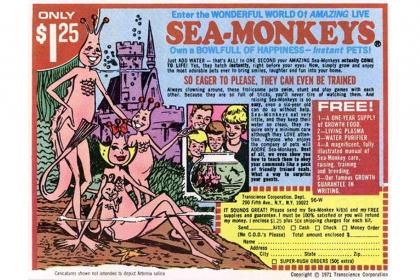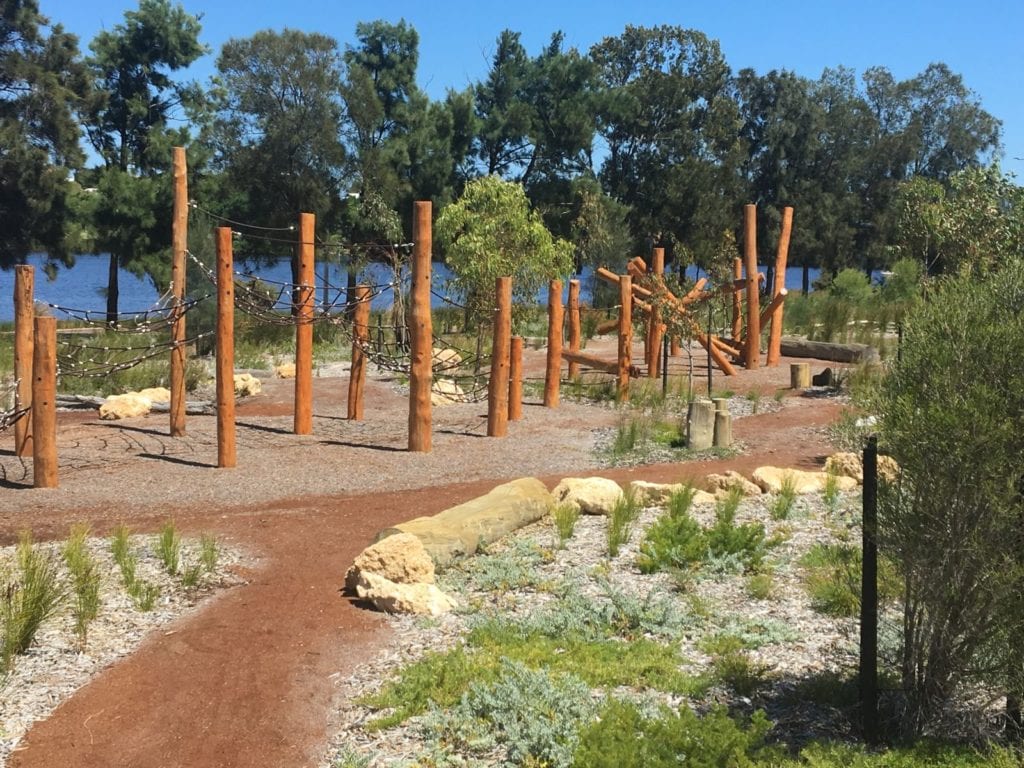
Once hatched they grow little monkey fingers, curly tails and darty eyes and become lifelong companions who sit in a pint glass gaffer-taped to your shoulder and sing sea shanties.
You know, for adventures and stuff.
Yes, I wanted Sea Monkeys. In fact, I wanted a colony of them I could hothouse into a state of evolutionary superiority through a strict regime of Adam Ant, Rory the Red stories, and Wagon-Wheel crumbs. Thus evolved, they would agree with even my less resolved theories and undertake mission of extreme bravery using their ninja skills and invisibleness.
But I didn’t have an aquarium. Or a pint glass. Other kids had aquariums.
But who cares anyway, because Sea Monkey’s are actually just genetically engineered brine shrimp. And not the good kind of genetically modified brine shrimp. The boring kind.
And yet, for decades, every single (other) kid on the planet had Sea Monkeys. I don’t know what they did with them. But they had them.
Don’t get me started on Tamagotchis.
Childhood, as you well remember, is full of fads. And so, as it happens, is the health industry (will you please stop the research at the ‘moderate red wine is good for you’ bit – done, move on), tent design, and parenthood.
And as you gaze around for clues from electronic mega-village on this while messy, relentless, sometimes beautiful business of parenthood, and look for cues from the parents at playgroup who looked slightly less dummy-whipped, you’d be forgiven for thinking this whole nature play thing is another fad.
Right, so now dirt is good for you? And a little risk builds resilience? Please, what’s next? Give it a year and they’ll be telling me us that biodiversity causes cancer.

Here’s the thing though. Nature play is actually an anti-fad. It is just time and space for free play outdoors. The more nature there is in outdoors you have available the better, but at its heart nature play is just mucking around outside.
There is nothing to buy. Nothing sign-up for. You don’t need a specially designed place to do it – nice as they are. You don’t need special shoes. You don’t even need an aquarium. Nature play is just what kids have always done, and what our kids do when they get half a chance. And being a nature play parent is about creating that chance.
It is about recognising that play and the outdoors are important for your kid and giving them space in your busy life. People like Nature Play WA can bang on about how mucking around outside promotes good mental and physical health, reduces allergies, builds resilience, fosters creativity and social and emotional development – but you know a version of all of that when you see your kid’s face after real play. There is a universe in their eyes and energy in their bodies that you recognise – because you had it too.
Which doesn’t mean you can’t have Sea Monkeys. If you want. If you have an aquarium.
